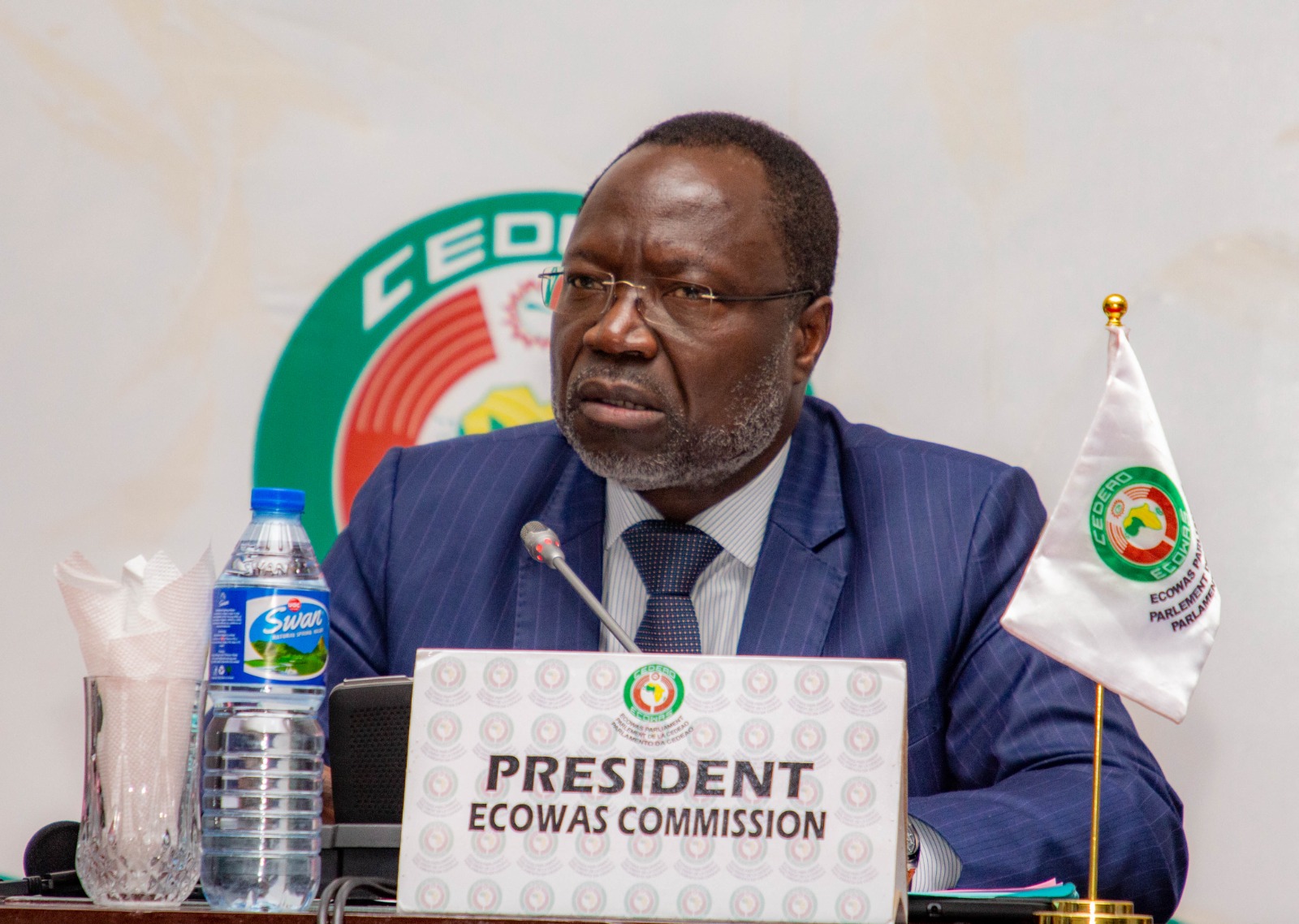The Economic Community of West African States (ECOWAS) has moved to strengthen the framework for the establishment of a $75million ECOWAS Renewable Energy and Energy Efficiency facility in the region.
President of the ECOWAS Commission, Dr. Omar Touray disclosed this on Thursday at the opening of the 93rd Ordinary Session of the ECOWAS Council of Ministers holding in Abuja.
Dr Touray also listed other integrated programmes aimed at integrating the region, including the 6,800km Nigeria-Morocco gas pipeline projects, regulation on roaming, direct flight among member nations, water, amongst others.
He said, “Framework Document for the Establishment of an ECOWAS Renewable Energy and Energy Efficiency Facility has been finalised by the Ministers. This is a new blended finance facility with an initial amount of USD75 million, whose objective is to provide grants, loans and guarantees through regular demand-driven competitive calls for proposals providing clean energy solutions for the ECOWAS region.”
Speaking further on the Nigeria-Morocco gas pipeline, Touray said, “This regional integrative project aims to build a gas pipeline linking Nigeria to Morocco, feeding ECOWAS member states and Mauritania with future extension to Europe. It is an infrastructure of 6,800 km long, including 5,100 km offshore, with a transport capacity of 30 billion cubic feet of natural gas per year.”
Touray assured that the “Commission will continue to measure the impact of the community investments in regional cooperation and integration through the Human Capital Development indexes which include both regional and member state’s strategies, and commitments made towards improving health and nutrition, education, entrepreneurship, financial inclusion and digital economy. ”
He, however, bemoaned the dwindling community Levy in the last six years, saying only 40% of the approved Levy for this year had been received as at October 2024.
“For instance, for six consecutive years, the Community levy remittances from the Member States have been declining. This year, as of 30th October, the Community Institutions received only 40% of the approved funds from the Community Levy, thereby hindering the implementation of the Community work programme.
“This Council has a critical role in the realisation of the many objectives we set for our region. The role of our member states in providing the necessary resources for our Institutions, removing non-tariff barriers, implementing regionally agreed policies and commitments is vital to our success.
“Our local private sector actors also have an important role, and they need the support of both the regional institutions and governments to exploit the vast potentials in our community.
“We must give our local private sector actors the right of first refusal in any investment opportunity in our community. We should harness the resources of our businessmen and women to succeed. The goal is to mobilise, develop and retain regional capital within the Community for the overall good of all.”
On the issue of security, Touray said the community will continue to pay attention to security issues as well as political stability.
He noted that, “Terrorism, violent extremism and organised crime continue to hinder our efforts towards security. The ill effects of drug abuse and drug trafficking in our region are also of great concern. These challenges are far above the capacity of any single member state of the Community to overcome.”
He added that this informed the concern of the community about the decision of the military authorities in Mali, Burkina Faso and Niger to withdraw from ECOWAS.
“We will continue to engage with these authorities to reconsider their decision, which will serve no one party. Together, ECOWAS member states have made progress as our unity is our strength,” Touray said.
